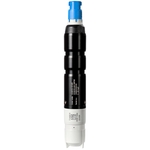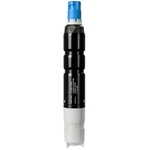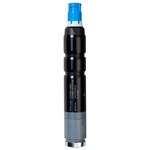Typical applications for water disinfection sensors
Water disinfection sensors play a crucial role in ensuring the safety and quality of water across various industries. Here are some key types and their applications:
- Memosens CCS51E: Used for monitoring chlorine levels in municipal water systems to ensure safe drinking water.
- Memosens CCS55E: Designed for detecting bromine levels in seawater treatment, crucial for maintaining marine life health.
- Memosens CCS50E: Specialized for monitoring chlorine dioxide in the food and beverage industry, ensuring product safety and compliance.
- Memosens CCS58E: Utilized in ozone disinfection applications, important for effective sterilization processes.
These sensors help maintain proper disinfection, meet regulatory standards, and improve operational efficiency.
Video Transcript
Different Types of Water Disinfection Sensors and Their Applications
Water disinfection plays a crucial role across multiple industries, from drinking water treatment to food production. Let's explore the various sensors used for different disinfection methods and their specific applications.
Chlorine Measurement in Municipal Water Systems
The CSS51E and CCS53E sensor effectively monitor free chlorine levels in municipal drinking water networks. The sensor ensures proper disinfection for maintaining safe chlorine levels for drinking water consumption. Regular monitoring helps prevent waterborne diseases while avoiding over-chlorination.
Seawater Treatment and Bromine Monitoring
When treating seawater, the CCS55E bromine sensor becomes essential. While chlorine is used for initial disinfection, seawater's natural bromides create hypobromous acid through chemical reaction. The CCS55E specifically measures free bromine levels, ensuring proper disinfection in:
- Seawater desalination plants
- Marine applications
- Coastal industrial facilities
Food and Beverage Industry Applications
The CCS50E sensor specializes in chlorine dioxide measurement, crucial for:
- Bottle cleaning in breweries
- Beverage production facilities
- Food processing plants
- Quality control in food packaging
Ozone Disinfection Applications
The CCS58E sensor monitors ozone levels across various applications:
- Water treatment facilities
- Fresh produce processing
- Wastewater treatment
- Industrial water systems
Key Benefits of Modern Disinfection Sensors:
1. Continuous monitoring capabilities for precise chlorine, bromine, and ozone dosing
2. Precise measurement for regulatory compliance
3. Prevention of over-disinfection
4. Cost-effective operation
5. Quality assurance in production processes
These specialized sensors ensure proper disinfection across multiple industries while maintaining safety standards and operational efficiency. Each sensor is designed for specific applications, providing accurate measurements for different disinfection methods.












